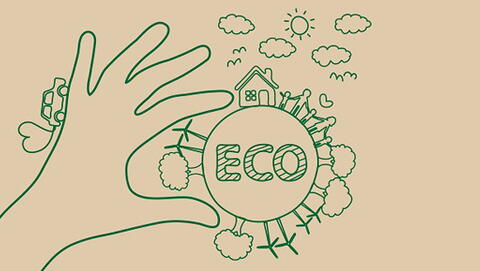
Sorbonne University strengthens its commitments in the era of temperance and transition
In response to the energy restrictions exacerbated by the climatic and geopolitical crises, Sorbonne University reinforces its proactive policy in terms of energy temperance and unveils a multi-year plan to reduce energy consumption for the institution, while maintaining teaching, research and administrative activities.
The record heat recorded this summer in Europe and the numerous episodes of drought and fires cannot leave us unmoved in the face of the ultimate urgency to react to global warming. The conclusions of the latest report of the Intergovernmental Panel on Climate Change (IPCC) reflect this. At the same time, the international context includes uncertain gas supplies and is leading to inflation in the cost of electricity. Higher education and research institutions and their users, staff and students, are directly impacted by the consequences of this climate change and energy crisis.
In a circular dated September 24, 2022, the Ministry of Higher Education and Research (MESR) defined the government's energy temperance plan, setting the objective of reducing energy consumption by 10% within two years. As part of this plan, higher education and research institutions have been asked to implement a strategy for the coming years.
As an extension of its policy for sustainable development, Sorbonne University has developed an energy conservation plan following the recommendations of the French High Council for Climate. Submitted to a vote of the Board of Directors on November 15, 2022, this plan is part of the continuity of the charter "in favor of an ecologically and socially responsible university" of our institution, and of two action plans that follow (2018-2021 and 2022-2025).
The result of a collective reflection and following an online survey open to the community, it describes proposals for short- and long-term actions to accompany transitions in all its missions, both in our research and teaching activities and in our support activities.
Sorbonne University's temperance plan is based on five components: management and awareness, real estate management, research activities, mobility, and responsible purchasing, for which operational actions have already been launched.
- Steering and Raising Awareness
In order to ensure effective management of the 2021-2025 sustainable development action plan, a "sustainable development and social responsibility" unit has been set up at the institution and placed under the responsibility of the Vice President for Heritage and Sustainable Development. Its role will be to inform and raise the awareness of the student community and staff on a regular basis and to implement actions to obtain the SD&RS1 certification for Sorbonne University by the end of 2024. A first awareness campaign on eco-actions has been deployed to reduce our carbon impact and save energy.
- Real-Estate Management
In order to continue the efforts undertaken in recent years to improve energy-intensive buildings and to meet the energy reduction objectives for the coming years, the institution has proposed a new carbon footprint for the university and has deployed Deepki Ready, shared monitoring tool to measure energy use. The university has also launched a tertiary energy audit, the purpose of which is to take stock of the energy consumption of its buildings and identify potential energy-saving measures. It is accompanied by a set of recommendations and an action plan to be implemented to improve the energy efficiency of our buildings.
- Research Activities
As a research university mobilized on transitions, Sorbonne University plans to establish a partnership with the collective Labos 1point5. The global analysis of our carbon impact at the university level will be progressively completed with a more detailed assessment at the laboratory and services level. This will calculate the impact via the GES 1point5 tool to study the effects on the consumption (electricity, water, heat, etc.), in the adjustment of technical installations, the interior design of the premises or changes in user behavior.
- Mobility
In order to encourage soft mobility and reduce CO2 emissions, a bicycle plan and a sustainable mobility package have been in place since the end of 2020. An analysis of the electrification of the vehicle fleet will soon begin to complete this "clean transport" plan.
- Purchasing
With the development of the Plan for the Promotion of Socially and Environmentally Responsible Purchasing, action levers for public procurement and contracts will be identified that reduce the costs inherent in our consumption and move towards more responsible practices.
As a public institution of higher education and research, Sorbonne University fully assumes its responsibility in sustainable, economic and social development and wishes to provide solutions through research and education to these societal challenges. Because sustainable development is everyone's business, we are counting on the mobilization of each and every one of us to participate in the collective national effort to reduce our energy consumption, in order to preserve all of our activities.

